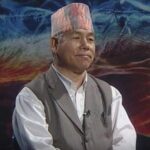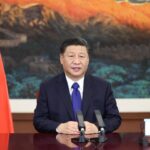French footballer Antoine Griezmann said on Thursday he was ending his sponsorship contract with Huawei over allegations that the Chinese telecoms giant was involved in the development of a facial recognition software that suppresses Uygurs in Xinjiang.
Griezmann perhaps has never been to Xinjiang, but he resorted to such radical means to draw a line with Huawei. This shows how seriously France and the West have defamed Huawei.
In the West, everything connected with Xinjiang would be suspected of assisting suppression of the Uygurs. Products from Xinjiang are said to be made with forced labor, and even opening a business is Xinjiang would be accused of supporting suppression.
The Chinese people can clearly feel the hysteria and ludicrousness of such extremism. Griezmann’s action makes him a fool. Xinjiang is by no means what the West describes. Violence and terrorism have been wiped out and its economy is recovering. The epidemic control situation is far better than that in France. Huawei is a great company. France has not even one high-tech company as Huawei.
Double standards also play a role. According to strict Western moral standards, companies such as Intel and NVIDIA whose chips are installed in Xinjiang’s facial recognition system should also be targeted. However, Western opinion seldom makes such harsh criticism, while Chinese companies like Huawei become the target of attack by Western opinion. The West-chanted morality only serves Western interests.
The US crackdown on Huawei has a geopolitical goal. People who have at least a little political sense would know it. But many Western opinion agencies lend a helping hand to deeply demonize Huawei. They spread the suspicion that Huawei collected intelligence for the Chinese government, and then labeled Huawei. On Tuesday, the Washington Post carried an in-depth article which attempted to consolidate the accusation that Huawei assisted in the “suppression” in Xinjiang.
Is Huawei that bad? Huawei said it is open to a “no backdoor” agreement with any country. Is there any big IT firm in the US willing to sign such an agreement? Until now, the Western world has failed to provide evidence showing the involvement of Chinese companies such as Huawei and TikTok in intelligence gathering, while a large swath of personal data in the world is in the hands of American internet companies. The PRISM scandal exposed a tip of the iceberg of US surveillance on the world, but why didn’t Western opinion agencies have the courage to track it down and disclose more of the US government’s surveillance on the world?
Western opinion is a tiger when facing China, but turns into a cat when facing the US. The US entrapment of Huawei is an unprecedented, unjust case in the history of crackdowns on tech companies. The US political persecution of Huawei is crystal clear. Western media did not stand out to stop such a US maneuver, but acted as an accomplice of the US crackdown on Huawei. This is the shame of Western public opinion.
Common sense and rationality tell us that labeling can easily happen in the opinion sphere. China is a country with complexities – it is developing fast, uses the same technology as the West, has various connections with the West, and has not been involved in a war in the past few decades. Although it has a different political system and ideology from the West, it is by no means a “dark country” as described in the West.
The West’s understanding of China has gone wrong, which makes it more difficult to communicate between China and the West, but the one who loses more is the West.
Illustration: Liu Rui/GT
Global Times



